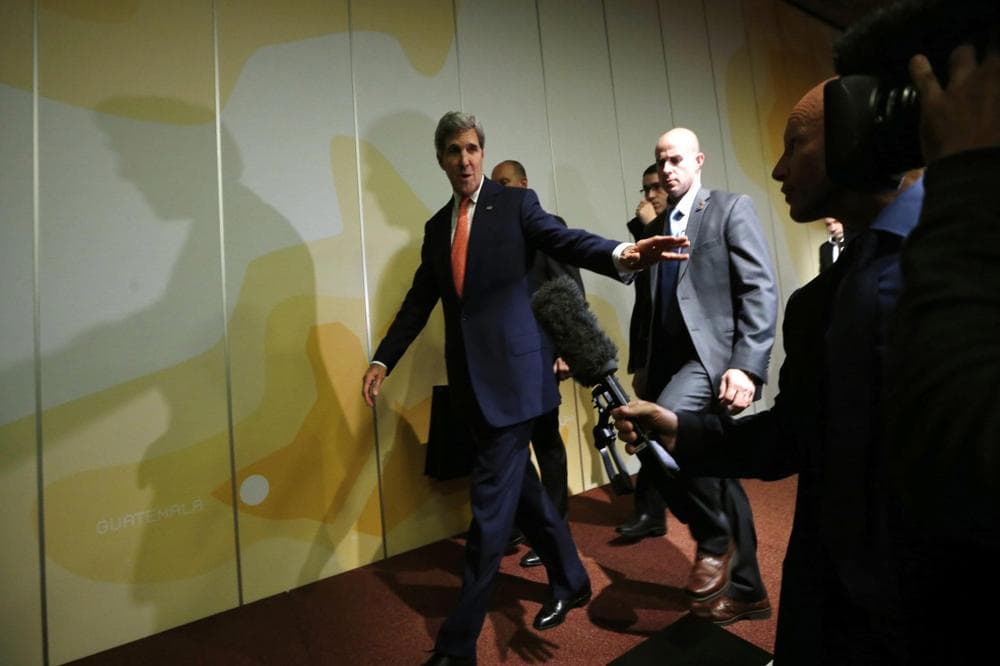Advertisement
Iranian Peace Talks Stay Stuck
ResumeThe US and Israel are split over negotiations with nuclear Iran. We’ll look at the arguments, and the stakes.

Secretary of State John Kerry on the air today, essentially saying the US can negotiate with Iran over its nuclear program - or go to war with Iran. The White House wants to negotiate. Israel has blasted the negotiations. Israeli Prime Minister Benjamin Netanyahu saying they are headed for “a very dangerous and bad deal,” and “the deal of the century” for Iran. This week, many in the US Congress are picking up that theme. But the American people, says the White House, do not want a march to war. Up next On Point: the US-Israel split and more over negotiations with Iran – and what happens now.
-- Tom Ashbrook
Guests
Michael Hirsh, chief correspondent at National Journal. (@MichaelPHirsh)
Mark Dubowitz, executive director of the Foundation for Defense of Democracies. Co-chair of the Project on U.S. Middle East Nonproliferation Strategy. (@dubo1968)
Suzanne Maloney, senior fellow in foreign policy at the Brookings Institute's Saban Center for Middle East Policy. (@MaloneySuzanne)
From Tom's Reading List
Wall Street Journal: The Case for Stronger Sanctions on Iran — "The Geneva negotiations indicate that Mr. Rouhani's bosses are willing only to make concessions that are easily revoked or not much of a nuclear impediment to start with. The U.S. and its allies seem much more likely to get the attention of the supreme leader and the Revolutionary Guards if the pain from sanctions is so intense that a choice has to be made between economic collapse and the nuclear program."
CNN: Bad Iran deal worse than no deal — "The problem is that the Iranian leadership does not operate by Western standards. Seldom does the Iranian government place the wellbeing of its population above its own revolutionary ideology. The Supreme Leader considers himself the Deputy of the Messiah on Earth. Sovereignty comes from God; what the Iranian people may think is beside the point."
Haaretz: Netanyahu’s rage at Iran nuclear deal is fueled by 1938 Western betrayal at Munich — "Prime Minister Binyamin Netanyahu, to paraphrase Groucho Marx, cannot accept any agreement that Iran has agreed to. Conversely, the only nuclear accord that Israel can live with is one that Tehran can’t. Actually, nothing short of complete and utter dismantlement of Iran’s nuclear infrastructure can convince Israel that the mullahs in Tehran have changed their ways. That Iran has given up its quest for nuclear weapons. That Tehran is no longer pursuing a bomb with which to achieve regional hegemony and to threaten Israel with extinction."
This program aired on November 14, 2013.